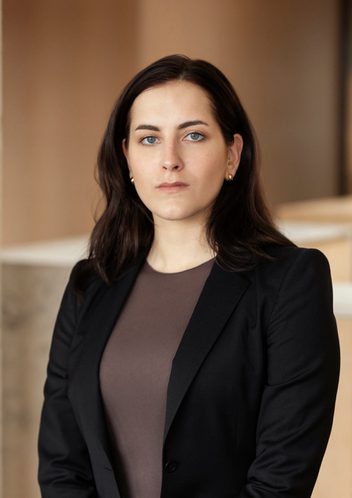
Sofie Axelsson
Associate
Stockholm
Newsletter
by Sofie Axelsson and Sofia Studencki
Published:
The founder and CEO of Sweden's controversial Flashback forum was acquitted on October 1 by the Stockholm District Court of charges under the Electronic Bulletin Board Act. The court ruled that although several forum posts clearly constituted hate speech, the Flashback operator had not acted with gross negligence, the legal standard required for criminal liability. Prosecutors now have until October 22 to appeal, meaning the case remains formally unresolved.
The trial represents a test of how democratic societies balance freedom of expression with protection from hate speech in the digital age. The Flashback founder was accused of gross negligence for failing to remove messages that contained hate speech against ethnic groups from flashback.org. The prosecution alleged twelve separate occasions between 30 October 2022 and 28 February 2023.
In its ruling, the court emphasized that the forum’s operator had implemented measures such as volunteer moderators and reporting functions, and while oversight was found insufficient, this did not amount to the type of serious neglect or disregard that constitutes gross negligence.
Swedish jurisprudence on freedom of expression has been shaped by the landmark case of Åke Green, decided by the Supreme Court in 2005. Green, a Pentecostal pastor prosecuted in 2004 for a sermon condemning homosexuality, was ultimately acquitted by the Swedish Supreme Court, which found that his statements, whilst offensive, fell within the bounds of freedom of speech and religious discourse protected by the European Convention on Human Rights.
The Green precedent established crucial principles for balancing freedom of expression against hate speech prohibitions. The Supreme Court emphasized that freedom of expression enjoys a privileged position in Swedish constitutional law, requiring that restrictions be both necessary in a democratic society and proportionate to the legitimate aim pursued.
However, the Green case concerned direct speech by an individual expressing personal religious convictions. The Flashback case presented a fundamentally different scenario: the prosecution of a platform operator for failing to moderate third-party content. This distinction shifted the legal analysis from direct freedom of expression to questions of intermediary liability and the scope of obligations imposed upon digital platforms.
A crucial distinction in Swedish law separates constitutionally protected databases from ordinary electronic bulletin boards subject to the Electronic Bulletin Board Act (BBS Act). This creates a two-tier system of digital rights. Constitutionally protected databases operate under the Fundamental Law on Freedom of Expression and enjoy enhanced protection from governmental interference, prohibition against prior restraint, and special procedural protections requiring qualified parliamentary majorities for amendment. In contrast, electronic bulletin boards under the BBS Act, including flashback.org, are subject to obligations to maintain supervision over the service as can reasonably be required and remove messages of criminal nature, stricter moderation requirements without constitutional protection, and potential criminal liability for non-compliance. The central issue, therefore, was not only whether the speech in question was hateful, but whether the forum’s operator’s failure to remove the posts constituted gross negligence within the meaning of the statute.
This creates a paradoxical situation where traditional media with constitutional protection may enjoy greater latitude to publish controversial content than digital platforms facilitating user discourse, potentially creating hierarchies of expression based on technological medium rather than content contribution to public debate.
The Digital Services Act (DSA), which came into full effect in 2024, imposes comprehensive obligations on platforms regarding content moderation whilst attempting to balance these with fundamental rights protections. The DSA's approach differs significantly from Sweden's BBS Act through risk-based regulation applying different obligations based on platform size, procedural safeguards including appeal mechanisms, explicit fundamental rights integration, and harmonization across the EU.
The DSA recognizes that different platforms pose varying levels of societal risk based upon their size, reach, and business model. This approach contrasts with the BBS Act's uniform application of obligations regardless of platform characteristics.
With the acquittal of Flashback’s founder, the trial may reshape the Swedish debate. Whatever the eventual outcome on appeal, the case highlights the need for clarity and reform in the regulation of digital expression. As Sweden and the EU navigate this complex terrain, the Flashback proceedings may prove to be a turning point in defining the responsibilities of platform operators and the future of free speech in the digital public sphere.

Associate
Stockholm

Senior Lawyer
Stockholm

Partner
Oslo

Partner
Oslo

Partner
Oslo

Senior Associate
Oslo

Partner
Oslo

Senior Lawyer
Stockholm

Senior Associate
Oslo

Partner
Oslo

Partner
Oslo

Partner
Oslo

Managing Associate - Qualified as EEA lawyer
Oslo

Associate
Stockholm

Associate
Oslo
